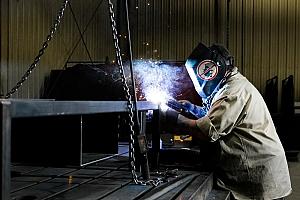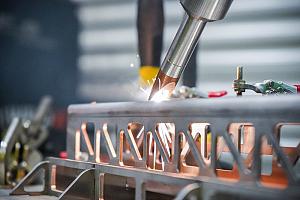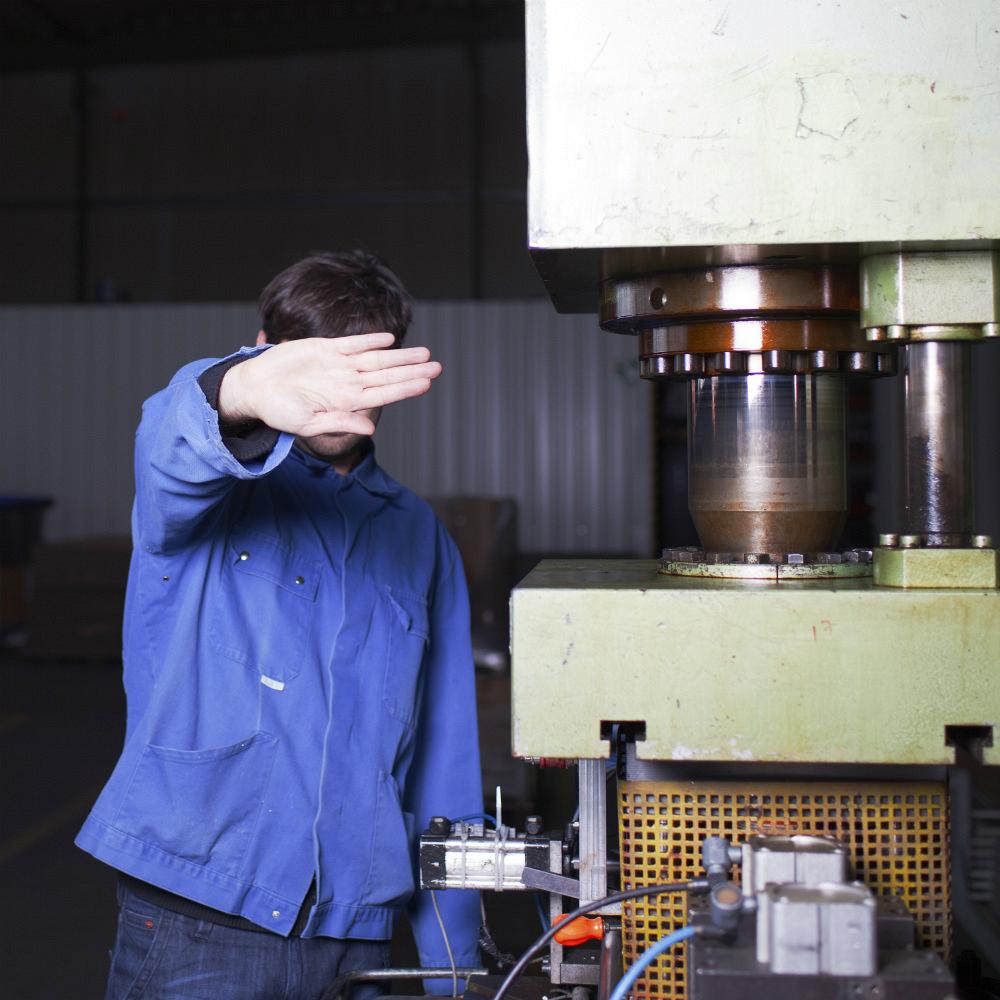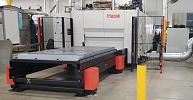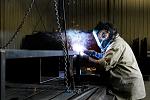- FMA
- The Fabricator
- FABTECH
- Canadian Metalworking
Categories
- Additive Manufacturing
- Aluminum Welding
- Arc Welding
- Assembly and Joining
- Automation and Robotics
- Bending and Forming
- Consumables
- Cutting and Weld Prep
- Electric Vehicles
- En Español
- Finishing
- Hydroforming
- Laser Cutting
- Laser Welding
- Machining
- Manufacturing Software
- Materials Handling
- Metals/Materials
- Oxyfuel Cutting
- Plasma Cutting
- Power Tools
- Punching and Other Holemaking
- Roll Forming
- Safety
- Sawing
- Shearing
- Shop Management
- Testing and Measuring
- Tube and Pipe Fabrication
- Tube and Pipe Production
- Waterjet Cutting
Industry Directory
Webcasts
Podcasts
FAB 40
Advertise
Subscribe
Account Login
Search
Illegal immigration and manufacturing—a conundrum?
- By Vicki Bell
- February 16, 2017
In my inbox today was a message with the subject line “Uncertainty, The New State of Mind.” It piqued my curiosity, so I opened it.
The message said, “Uncertainty. Uncertainty combined with fear is now a common state of mind within immigrants in the US. The chaos with Trump’s immigration ban and the recent immigration raids reported around the country have spiked these feelings in millions of legal and illegal immigrants in our country, affecting more people than we think.
“First, it directly affects immigrants who carry dual nationalities. But second, it affects everyone on an emotional level. As stress levels rise, the consequence is more people begin to feel unsafe. And when we feel unsafe or threatened, nothing good can come of that.
“If you would like to speak to an expert on handling emotions, cultural sciences, and in using understanding and empathy to defeat fear and mistrust …”
It was essentially a pitch to interview an immigrant speaker, author, and activist. And while I’m not leaning toward doing so at this particular time, the email made me think not only about the lives affected, but also about the numbers of illegal immigrants currently working in different industries in the U.S. and the effects their deportation might have on these industries.
More than a decade ago, one of my sons worked at a big-box store on an overnight team that stocked the facility. Many of his coworkers were Hispanic, and at least some of them were in the country illegally. I remember him telling me about Juan and his brother, who were illegal and in possession of multiple IDs. Like others in this group, the brothers were sending money back to Mexico and had hopes of “moving” their relatives to the U.S. We discussed whether the store management was aware of the brothers’ status. They conducted background checks in hiring, but I’m not sure that businesses then were as concerned about having illegals on the payroll as they likely are now. Besides, these workers were diligent and reliable. They showed up and did a good job.
Which brings me back to my original thought upon reading the email. How will the many industries currently employing illegals be affected by mass deportations, if it comes to that?
Let’s look at manufacturing in Illinois
According to an article published by the Chicago Tribune on January 13, 2017, “there are 475,000 undocumented immigrants in Illinois and 350,000 in the labor force, according to the Pew Research Center.
“Illinois, where 5.8 percent of workers are unauthorized immigrants, would lose $21.9 billion in GDP, sixth behind California, Florida, Texas, New York and New Jersey.
“Illinois’ manufacturing industry would take the biggest monetary hit if the unauthorized labor pool disappeared, losing about $5.6 billion in annual GDP, a 5.8 percent decline, according to the research, commissioned by the left-leaning Center for American Progress and published in the series of papers from the National Bureau of Economic Research, a nonpartisan research nonprofit.
“Ten percent of manufacturing workers in Illinois are unauthorized, and the industry is the largest employer of the state’s unauthorized immigrant workforce, according to 2012 data analyzed by Pew.
“The study did not look at how legal workers might fill mass job openings.” Ryan Edwards, the study’s co-author and a visiting associate professor at Mills College in Oakland, Calif., said that “employers in decimated industries might raise wages to attract U.S. workers, but in the long run he imagines most would adjust to a smaller number of workers by shrinking their business or automating.”
Quoted in the article is Dan Zeman, fourth-generation owner and president of Lisle-based Zeman Manufacturing. According to Zeman, “the crux of the issue is that only people desperate for work will endure the poor wages and conditions some employers offer.”
"’You need to raise the (wage) floor so that this exploitative job market doesn't exist, an exploitative job market that only attracts undocumented immigrants," said Zeman, whose company employs 25 people and pays an average wage of $19 an hour.
“But low-wage workers represent only part of the unauthorized workforce in manufacturing.The industry also relies on many immigrants, legal and not, highly skilled in manual trades that are difficult to find in the native-born population, said Zeman, whose company makes metal tubes for products like surgical devices and seat frames.
“Though Zeman's central concern about Trump's immigration rhetoric is what he sees as dangerous scapegoating of immigrants, he also believes finding substitutes for skilled workers in the event of an immigration crackdown could be bad for business.
"’If I were to go to the unemployment rolls right now (for hiring), I think there would be a huge drop-off in the quality of work, frankly,’ he said.”
Immigration, both legal and illegal, is just one of several issues confronting the U.S. at this time. Although some clearly see it as such (I read Facebook rants), how to handle the issue isn’t as clear-cut as some believe. There are ramifications that should be considered carefully before policy is enacted and action taken. Don’t throw the baby out with the bathwater.
subscribe now

The Fabricator is North America's leading magazine for the metal forming and fabricating industry. The magazine delivers the news, technical articles, and case histories that enable fabricators to do their jobs more efficiently. The Fabricator has served the industry since 1970.
start your free subscriptionAbout the Author

Vicki Bell
2135 Point Blvd
Elgin, IL 60123
815-227-8209
- Stay connected from anywhere

Easily access valuable industry resources now with full access to the digital edition of The Fabricator.

Easily access valuable industry resources now with full access to the digital edition of The Welder.

Easily access valuable industry resources now with full access to the digital edition of The Tube and Pipe Journal.
- Podcasting
- Podcast:
- The Fabricator Podcast
- Published:
- 04/30/2024
- Running Time:
- 53:00
Seth Feldman of Iowa-based Wertzbaugher Services joins The Fabricator Podcast to offer his take as a Gen Zer...
- Industry Events
Pipe and Tube Conference
- May 21 - 22, 2024
- Omaha, NE
World-Class Roll Forming Workshop
- June 5 - 6, 2024
- Louisville, KY
Advanced Laser Application Workshop
- June 25 - 27, 2024
- Novi, MI
Precision Press Brake Certificate Course
- July 31 - August 1, 2024
- Elgin,

